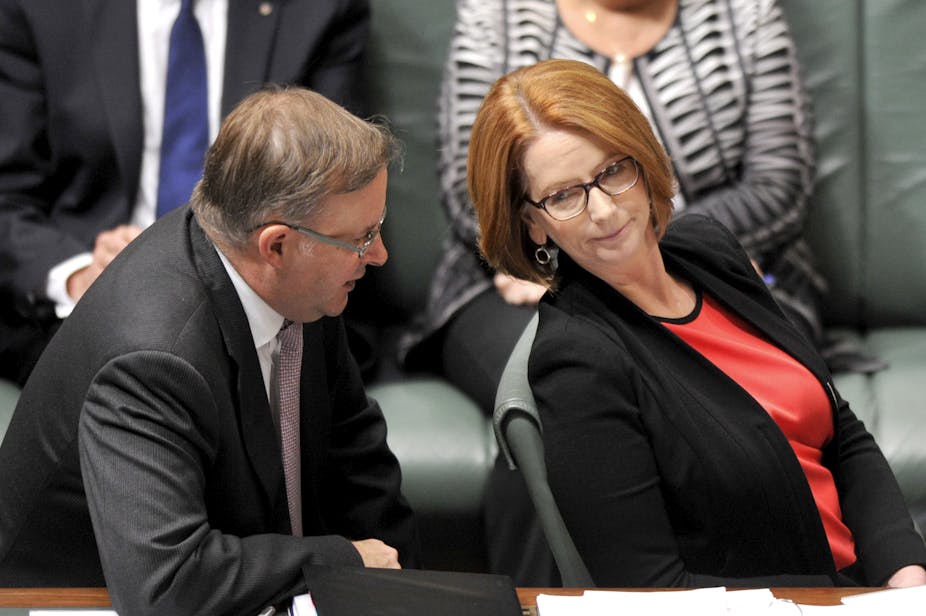Is this the referendum we don’t need to hold?
And how many Australians truly understand the potential impact of their actions when they vote in referendum of the constitutional recognition of local government on September 14, the same day as the federal election?
The Gillard government has already announced the introduction of the Constitution Alteration (Local Government) Bill in the winter sitting of federal parliament. The purpose of the bill is to seek a referendum to amend the Constitution to provide for financial recognition of local government.
Although the proposal has the potential to further erode the state of the Australian federation, it has received only scant attention.
This oversight is a function of both circumstance and timing. The referendum, first mooted in 2010, has been over shadowed by the politics of minority government, even though it is, ironically, a by-product of it.
If the referendum does proceed, debate on the issue is likely to be further eclipsed by the 2013 federal election.
A federal Labor government has twice attempted to enshrine recognition of local government in the Constitution, in 1974 and again in 1988. On both occasions, the people had the good sense to reject the question.
The current draft bears a strong resemblance to earlier efforts to codify local government into the federal Constitution. It involves amending section 96 of the Constitution. If successful, it will result in the insertion of a reference to local government bodies, specifically that the Commonwealth parliament may grant financial assistance to any state, or to any local government body formed by a law of a state.
The government argues enshrining local government into the Constitution is merely recognition of the existing reality of the relationship between national and local government. The national government funds local governments both directly and indirectly to the tune of A$2.7 billion per year. This money is used to pay for community infrastructure projects.
There appears to be broad political consensus for the referendum which has been driven by the Australian Greens and independents Tony Windsor and Rob Oakeshott. Constitutional recognition of local government was a condition of their support for a Labor minority government.
The coalition has also indicated in-principle support for the planned bill, although there are a number of high profile MPs within the party room who oppose the initiative.
Outside of the rarified air of the federal parliament, the Australian Local Government Association (ALGA) is among the most enthusiastic proponents of the referendum - the proposed alteration to Section 96 will presumably safeguard the flow of federal funds into their coffers.
Given the widespread support for constitutional recognition of local government, one could be forgiven for thinking the proposed referendum is both innocuous and beneficial.
However, the changes being proposed to the Constitution are significant in both practice and in principle.
Whether it is the Gillard government’s intention or not, this referendum will permit further federal government expansion into affairs which it does not have original formal jurisdiction.
While this federal “creep” has been occasionally sanctioned by the High Court, it has largely come about as a consequence of the financial dominance of the federal government.
Any further subversion of the federal principle is problematic. Federations are complex structures and not without complications. But the benefits of this type of political arrangement are frequently misunderstood.
One of the great strengths of a federal system is it limits the capacity for any one level of government to dominate all policy areas. The renting of power between state and federal tiers of government provides citizens with the ultimate protection against the institution of government.
If successful, the referendum will introduce greater scope for federal governments to bypass those state governments that it perceives to be as recalcitrant by funding local governments directly.
Opposition to constitutional recognition for local government is not an argument for freezing the federation in time. The Australian federation has changed since its establishment, a phenomenon which is both inevitable and natural. And there has been a legitimate role for some extension in the oversight of national government.
But proposals for formal constitutional change that diminish the states should be viewed with caution.
As Greg Craven pointed out in The Australian last week, this reform will not improve or enhance our system of government.
The federal government has not advanced a compelling case for a referendum. If, as it suggests, the proposed amendment is “a simple piece of national housekeeping”, why is change imperative?
A successful alteration to the Constitution is not a guarantee local governments will receive Commonwealth monies, only that the federal government may allocate revenue if it so chooses.
The referendum on constitutional recognition of local government will expand the powers of the federal government and create new opportunities for it to impose its priorities on the states. This will not simply diminish state governments but the citizens that they serve and represent.

